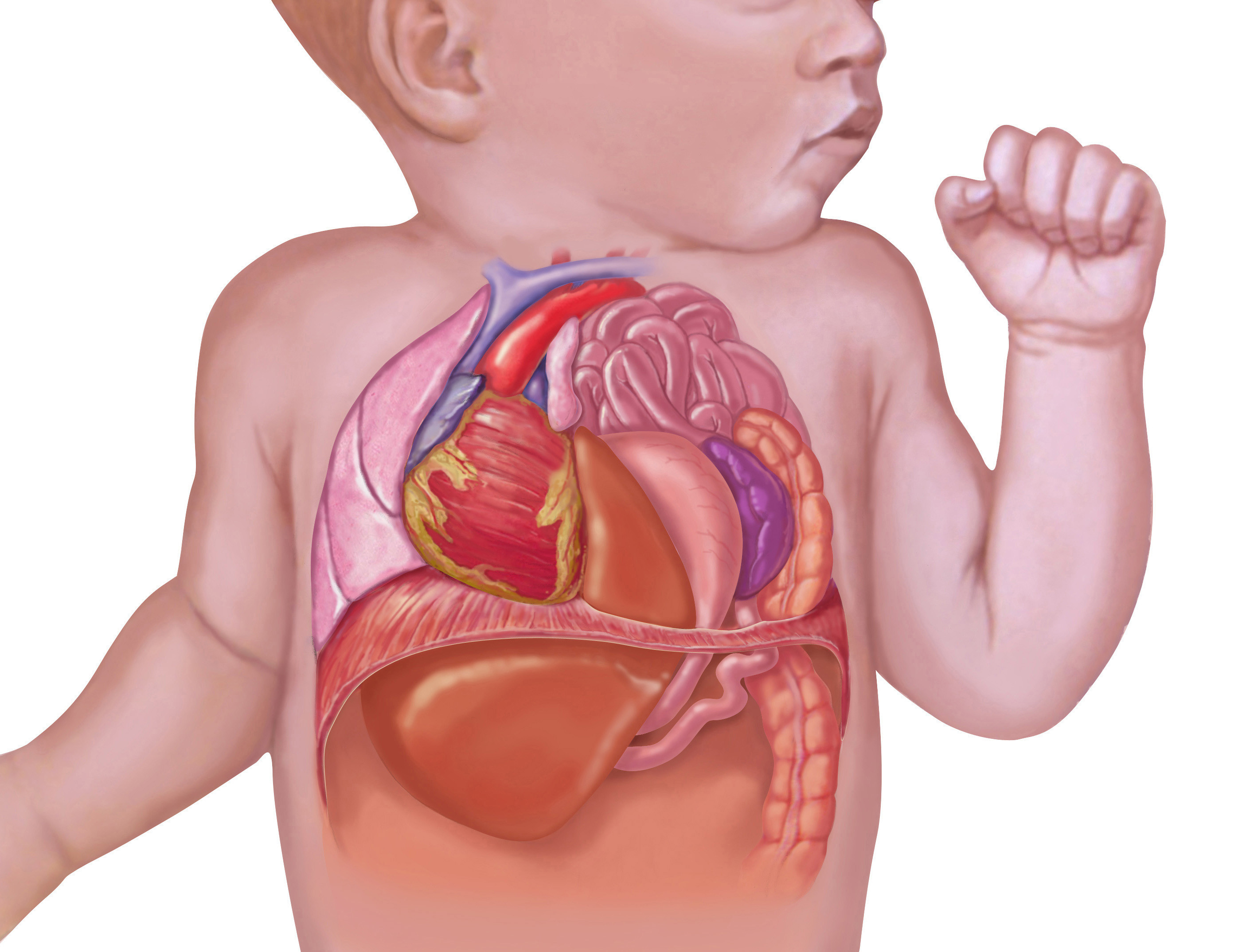Definition
Hyperemesis gravidarum is a condition of excessive nausea and vomiting during pregnancy. During the first trimester of pregnancy, it is normal for pregnant women to experience nausea and vomiting in the morning, known as "morning sickness." However, in some cases, pregnant women may experience excessive nausea and vomiting throughout the day.
Hyperemesis gravidarum is a medical condition that usually occurs in the early stages of pregnancy, typically between the fourth and sixth weeks. The symptoms of this condition can worsen between the ninth and thirteenth weeks. Severe nausea and vomiting can significantly impact a woman's quality of life, making it difficult for her to carry out daily activities. If left untreated, hyperemesis gravidarum can lead to dehydration, weight loss, and electrolyte imbalance.
The rate of new cases of hyperemesis gravidarum is approximately 0.3–3 percent, while nine percent of pregnant women report experiencing nausea during their pregnancy. Mothers with hyperemesis gravidarum in their first pregnancy have a higher risk of recurrent hyperemesis gravidarum in later pregnancies. Multivitamins before pregnancy may also help prevent it.
Causes
Currently, the cause of hyperemesis gravidarum is unknown, but there are several theories as to what may be associated with this condition in pregnant women.
- Hormonal changes
Blood concentrations of the hormone hCG (human chorionic gonadotropin) increase during the first trimester of pregnancy. Several studies have shown a correlation between high hCG levels and profuse vomiting. During pregnancy, estrogen also increases the frequency of hyperemesis gravidarum. Further investigation is still needed on this theory.
- Digestive system changes
Pregnancy induces a relaxation of the muscles between the esophagus and stomach due to increased levels of estrogen and progesterone hormones. Therefore, symptoms of gastroesophageal reflux disease (GERD) are more common during pregnancy.
Risk Factor
Risk factors for hyperemesis gravidarum include:
- Familial history of hyperemesis gravidarum
- Hyperemesis gravidarum in a previous pregnancy
- Overweight
- Twin pregnancies
Symptoms
Morning sickness usually causes light or moderate nausea or vomiting in pregnant women. They may experience nausea after smelling particular foods.
The following symptoms indicate hyperemesis gravidarum:
- Vomiting three to four times per day
- Dizziness and drifting
- 5% loss of weight
- Electrolyte imbalance and urine ketones are indicators of severe dehydration
Many disorders can occur during pregnancy, one of which is anemia. You can read about it here: Anemia in Pregnancy: Definition, Causes, and Risk Factors.
Diagnosis
Your doctor may ask about the following:
- Gestational age and current pregnancy status
- Previous pregnancy history
- Duration and frequency of the symptoms
- The severity of the symptoms
- Complete treatment for symptoms
- Similar symptoms in previous pregnancies
A comprehensive physical examination will be conducted to assess the condition of both the mother and the fetus, including the vital signs and indications of dehydration.
Your doctor will also suggest further tests to confirm your diagnosis, such as a urine examination, electrolytes, and renal function.
If you want to know more about urine testing, you can read about it here: Urinalysis: Definition, Causes, and Risk Factors.
Management
Lifestyle Modification
Eat more frequently but in smaller portions. Avoid foods that could cause nausea and vomiting, especially spicy foods. Increase your fluid intake once a day to stay hydrated.
Vitamin intake or supplements
Your doctor may advise you to take folic acid supplements. Three to four times daily, 10–25 mg of vitamin B6 (pyridoxine) may help with the severe symptoms.
Medication
Antiemetic medications for pregnant women may be prescribed. Due to the risk of dehydration and electrolyte imbalances, your doctor may administer an intravenous fluid to enhance your recovery. Supplemental nutrition can be administered through an intravenous line or a feeding tube placed into the stomach.
If you want to know more about vitamin B6 or pyridoxine, you can read about it here: Vitamin B6: How It Works, Indications, Preparation, and Dosage.
Complications
Untreated severe nausea and vomiting can cause maternal and fetal complications, as below:
- Deficiency of Vitamins
Vitamin B1 deficiency can result in Wernicke's encephalopathy, a brain condition that can cause severe disability.
- Esophageal damage
Frequent and severe vomiting may cause esophageal rupture.
- Psychological Issues
Mothers with hyperemesis gravidarum may have an increased risk of depression and anxiety during their pregnancy.
- Malnutrition
Excessive vomiting may lead to weight loss and fluid and electrolyte loss.
This condition increases the risk to both the mother and the fetus, as it is correlated with morbidity and mortality.
- Fetal complications
Certain studies indicate a correlation between hyperemesis gravidarum and the increased incidence of low-birth-weight babies and premature birth.
Prevention
It is possible to prevent severe nausea and vomiting during pregnancy by doing the following:
- Eat in smaller portions
- Select foods with a mild taste and aroma
- Iron supplements should be postponed until the symptoms are relieved
- Consume vitamin B6 according to your physician's instructions
- Start the folic acid supplementation one month before pregnancy, as it may reduce nausea and vomiting
When to see a doctor?
If you are experiencing frequent episodes of nausea and vomiting that are interfering with your daily activities, it is recommended that you see a doctor. It is also important to attend regular antenatal check-ups to monitor the progression of your pregnancy. If your symptoms worsen and you experience weakness, dizziness, or fainting, you should seek immediate medical attention by going to the hospital's emergency room.
If you need medical advice or consultation, you can either visit a doctor or use the consultation features available in the Ai Care application by downloading the Ai Care application from the App Store or Play Store.
Looking for more information about other diseases? Click here!
- dr Hanifa Rahma
Hiperemesis Gravidarum. (2022). Retrieved October 5, 2022, from https://www.ncbi.nlm.nih.gov/books/NBK532917/
Hiperemesis gravidarum. (2021). Retrieved October 5, 2022, from https://medlineplus.gov/ency/article/001499.htm
Heperemesis gravidarum (severe nausea & vomiting during pregnancy). (2021). Retrieved October 5, 2022, from https://my.clevelandclinic.org/health/diseases/12232-hyperemesis-gravidarum-severe-nausea--vomiting-during-pregnancy
Morning Sickness. (2022). Retrieved October 5, 2022, from https://www.webmd.com/baby/guide/morning-sickness-pregnant
What is hyperemesis gravidarum? (2020). Retrieved October 5, 2022, from https://www.webmd.com/baby/what-is-hyperemesis-gravidarum
Morning Sickness. (2022). Retrieved October 5, 2022, from https://yankes.kemkes.go.id/view_artikel/1448/morning-sickness
Morning Sickness. (2022). Retrieved October 5, 2022, from https://www.mayoclinic.org/diseases-conditions/morning-sickness/symptoms-causes/syc-20375254












